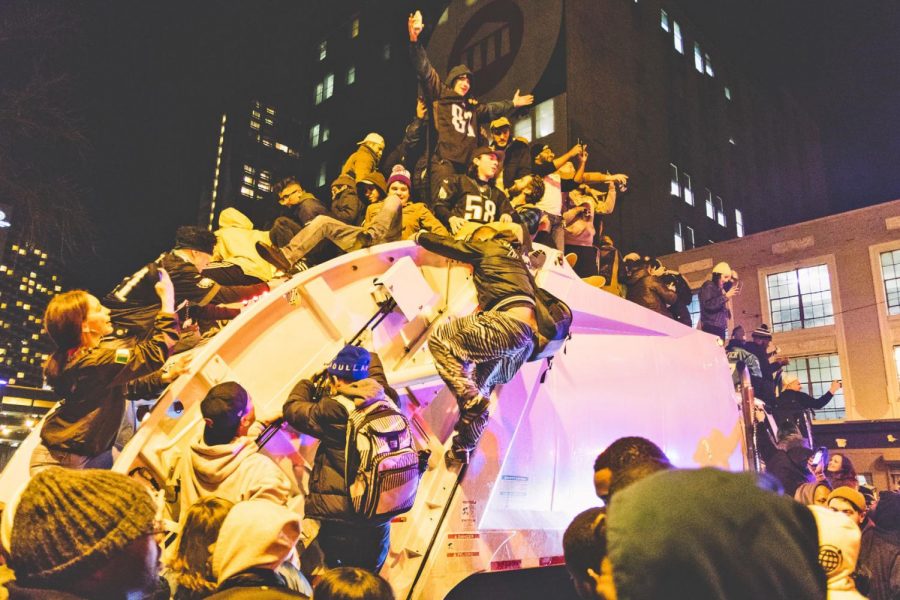Philadelphia destroyed by violent sportsball fans
All together there were only four arrests made during the riots in Philadelphia after the Super Bowl.
The 2018 Super Bowl was held on February 4, resulting in the Philadelphia Eagles winning against the New England Patriots. That’s not really all that important though. Rather, I would like to focus on what came after the sportsball event in which Philadelphia fans “celebrated” a little too hard, which resulted, reportedly, in light poles being torn down, storefronts being vandalized, windows shattered, cars broken and even some structures collapsed. Despite this, there were a mere four arrests, all for vandalism, and 12 in New England for violence following Super Bowl protests.
What’s important here is that the violent actions taken by fans celebrating has been, on a whole, tolerated far more than the protests of peaceful groups fighting for the rights of marginalized people, such as Black Lives Matters. What does this say about America’s relationship to protest? Is it only appropriate at certain times? Or is it the protesters that matter at the end of the day?
Well, let’s consider the distinctions between the events surrounding BLM and the NFL protests. The latter concerns a past time, a leisure activity and entertainment form which engages much of American society. Clothing, furniture, foodstuffs, wallpapers, etcetera, are inflused and adorned by the colors and symbols of a fan’s favorite team.
Boys who participate in football are viewed with pride, offered egregiously generous salaries and scholarships and are generally offered various privileges in highschool and the like. When they have fans, they have fanatics; people who have pretty much sold their soul and being for the sake of that sweet, sweet sportsball. And when those fanatics decide to destroy property and riot and disturb the peace because they won or they lost or one of their favorite players faces repercussions for their actions; they are coddled, given a tame little slap on the wrist and told to go home.
But when black people march, rally or (God forbid!) riot because they don’t want to be shot anymore, they are gassed, beaten, arrested and, counter-productively, shot by police. They are vilified on social media, condemned by politicians, criticized by people who refuse to listen to their plight and generally treated abhorrently.
The thing is, when marginalized people fight to end their protest, they are demonized for it. It challenges the status quo and aggravates the systems which continue to oppress certain groups and that’s threatening to a lot of people. Because of that, it’s easier for people to accept the arbitrary, privileged destruction of fans than it is to address the issues that warrant the marches, call for the sit ins and demand the kneeling during the national anthem.
There’s a reason people are upset and it’s not because of the old pigskin; it’s because people are suffering and they are trying to be heard. They deserve to be heard, without being demonized, without being dehumanized and without being condescended to. That’s not to say we can’t criticize them; we always have room to grow and we need to listen to what people have to say.
This has to stop. We have to criticise a society that inadequately addresses the plight of marginalized people; that necessitates protests to begin with. Riots don’t form from nothing, but some are more valid than others.







